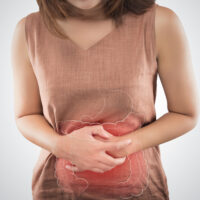The Treatments for Shingles You Should Know
Shingles is a type of skin rash that is caused by the Varicella Zoster virus. It usually appears in the form of a band or a strip covering a small area over the face or other parts of the body. It is sometimes also referred to as herpes zoster.
Older individuals who have a weaker immune system because of stress, injury, etc., usually suffer from this type of skin rash.

Before we discuss the treatments for shingles, let us know what causes them.
- It occurs when the virus that causes chickenpox resurfaces in the body. After the patient starts recovering from chickenpox, the virus becomes dormant in the nerve roots. In some cases, the virus remains dormant forever. When the virus becomes active (normally due to a weaker immune system) and reacts to ongoing medicines, it causes shingles.
- There is no clear evidence that states the real cause of shingles; however, once the virus becomes active again, it causes shingles and not chickenpox.
- There is a minor possibility that a person who is infected with shingles can spread the virus to people who haven’t had chickenpox or a vaccination for protection against it.
Following is a brief overview of the various available treatments for shingles:
It is necessary to establish a fact that there is no cure for shingles. However, you can shorten the length of the illness and prevent further complications.
- One of the prominent treatments for shingles include antiviral medicines that will help in reducing the pain and duration of shingles. Other than this, medicines such as antidepressants and topical creams can help in relieving long-term pain.
- The initial treatments for shingles comprise antiviral medicines which are administered during the first three days from when the symptoms first began to appear. Undergoing this initial treatment, you might have a lower chance of further complications such as post herpetic neuralgia.
- For chronic cases of shingles, the doctors may advise their patient with corticosteroids to be used with antiviral medicines in the cases where antiviral medicines do not help in providing relief from the symptoms.
- A person suffering from pain due to shingles that has lasted for longer than a month even after the shingles have healed, the doctor might diagnose them with post herpetic neuralgia (PHN). Being one of the most common complications of shingles, it can cause pain to an individual for months that can stretch even up to a year. However, it affects only 15 to 20 out of 100 people who have had shingles.
- PHN which is a part of ongoing treatments for shingles can be treated with antidepressants and topical anesthetics that are available as over-the-counter medicines. The patient can apply it directly on the skin for immediate pain relief.
- In some cases, the condition of shingles might get worse. Thus, in cases like these, treatment depends on specific complications that have arisen due to shingles.
- One of the complicated conditions of shingles is the disseminated zoster. It is a blistery rash that appears over a large part of the body. It may affect the heart, lungs, liver, pancreas, and other internal organs. The treatment includes antiviral medicines as well as antibiotics that will help in stopping the virus from multiplying and stopping the infection.
- A condition known as herpes zoster opthalmicus causes a rash on the forehead, cheek, nose, and around the periphery of the eye. This can compromise the person’s eyesight. The treatments for shingles in this condition may include antiviral medicines, resting, and cool compresses.
- In case the virus affects the nerves that originate from the brain, they can cause serious complications to the face, eyes, nose, and other organs where facial nerves are present. The treatments for shingles depend upon the nature and location of the infection.
Apart from the above-listed treatments for shingles, here are some other natural treatments for shingles:
- A person suffering from shingles can take a healing bath that will help in reducing the symptoms. Add 2 cups of colloidal oatmeal or cornstarch in lukewarm water and soak for at least 20 minutes. Keep in mind to not use hot but lukewarm water as hot water might worsen the blisters caused due to shingles, as heat increases the blood flow.
- Applying a cool, moist compress to the affected area several times throughout the day might help in relieving the symptoms. Wring out the water from a cloth soaked in cool water and apply it on the rash and blisters. Do not apply ice to the skin as it may increase the sensitivity of the skin and worsen the condition.
- A paste of cornstarch and baking soda helps in relieving the itching caused due to shingles. Four parts of cornstarch and two cups of water (or equivalent parts to make the desired consistency of paste). Apply this for 15 minutes and repeat several times.
- Dietary remedies to strengthen the immune system prevents shingles from spreading different parts of the body. Include foods that consist of vitamins like A, B-12, C, and E as well as amino acids. Some of the foods include orange, leafy green vegetables, red meat, eggs, chicken, tomatoes, spinach, etc.
Disclaimer:
The content provided on our blog site traverses numerous categories, offering readers valuable and practical information. Readers can use the editorial team’s research and data to gain more insights into their topics of interest. However, they are requested not to treat the articles as conclusive. The website team cannot be held responsible for differences in data or inaccuracies found across other platforms. Please also note that the site might also miss out on various schemes and offers available that the readers may find more beneficial than the ones we cover.





